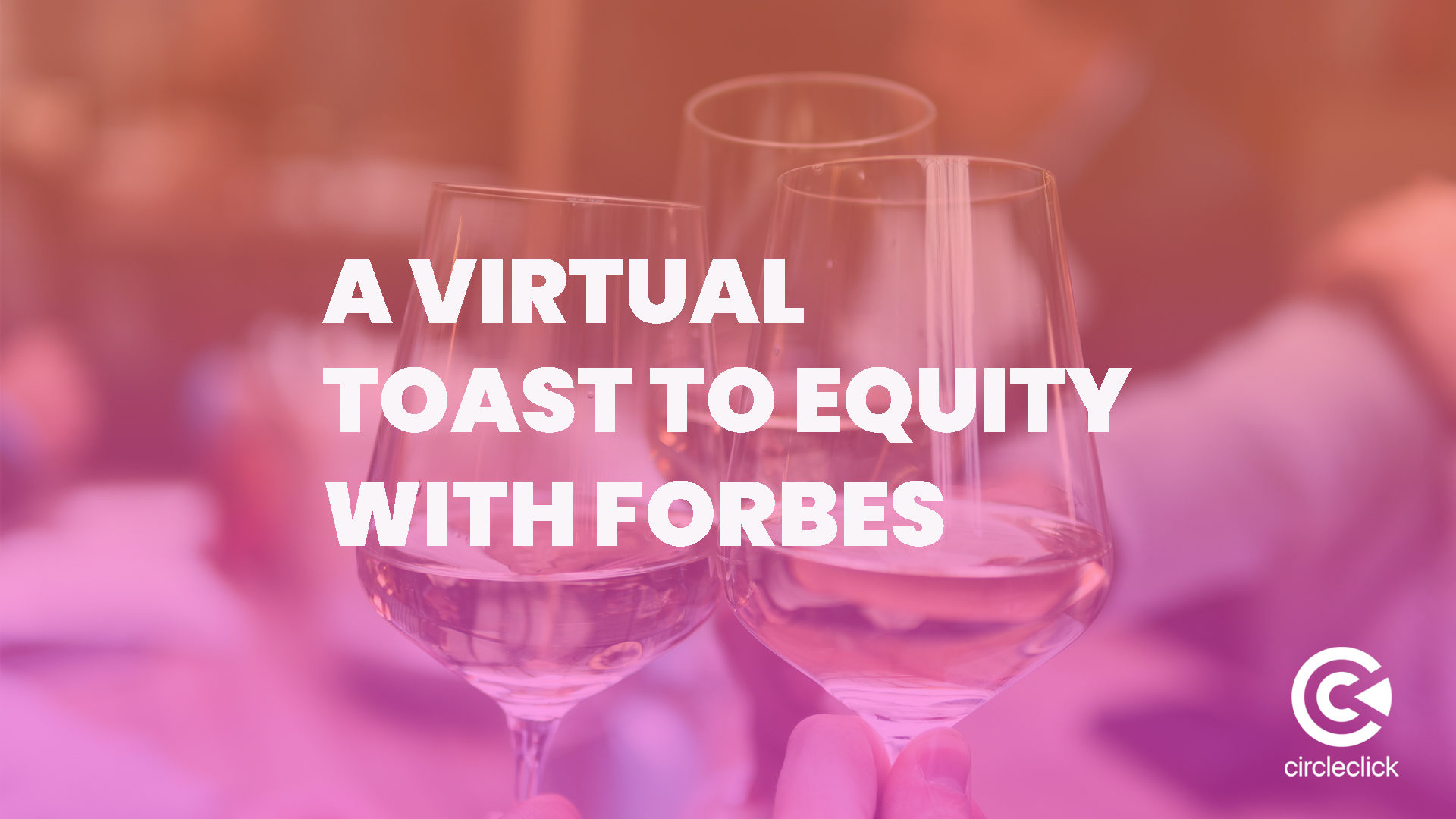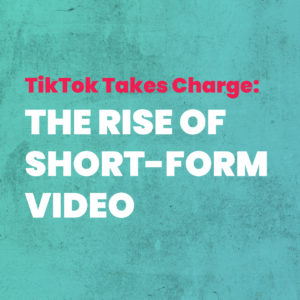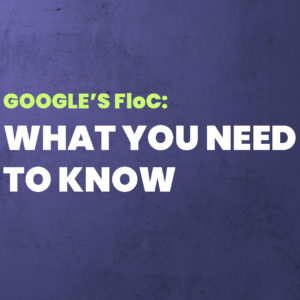A Virtual Toast to Equity with Forbes

Forbes recently hosted a virtual event that we were excited to attend, A Toast to Equity: Reviewing Our Progress and Recommitting to a Fairer Future. As an agency, we believe in equal opportunity for all, so we were eager to hear what progress has been made, and the challenges that still need to be addressed. The event kicked off with opening remarks from hosts Ali Jackson-Jolley, Assistant Managing Editor at Forbes Diversity, Equity and Inclusion, and Maggie McGrath, Editor at ForbesWomen.
Ali Jackson-Jolley opened the event by highlighting one of the year’s hottest topics, corporate America’s push for greater equity. While this topic has made its way through our news cycles and many corporations have announced their own stance on racial equity, recent stats show that just 32% of Americans believe that any progress has been made. And although people recognize the changes that companies have made, 55% of Americans say they want to see corporate America do more than simply make statements and monetary donations.
As Maggie McGrath noted in her opening remarks, the conversation which broke open last year was an important start to creating lasting change, but could not be the end. Against this backdrop, Ali and Maggie began their work to create a discussion about the progress and pitfalls of the past year with some seriously interesting panelists.
The first panel was constructed of women working to grow businesses and create change in the beauty and fashion industry. The discussion, Candid Conversation for Real Change and Sustainable Progress, was moderated by Sadé Muhammad, Vice President of Representation and Inclusion Practice at Forbes and panelists included Helen Aboah, CEO of Urban Zen, Kendra Bracken-Ferguson, Founder and Global Advisor of Braintrust and Marquita Robinson-Garcia, Founder of Dviniti Skin Care.
Sadé began the discussion by recalling the pledge many major retailers made in June of 2020 to commit 15% of their shelf space to black-owned businesses and asked if they felt the pledge was working. Kendra Bracken-Ferguson said that she is seeing change based on that commitment with retailers such as Nordstrom, Saks and Sephora stepping up to the plate and partnering with new, black-owned brands. However, Kendra and her fellow panelists were curious to see what the sustained commitment will be to ensure founders are not only getting retail space but that they will see long-term growth.
Sephora has displayed its commitment to support long-term growth by expanding shade matching technology and merchandising support for black-owned brands. The beauty retailer also updated its 2021 Accelerate program to emphasize inclusivity and exclusively focus on people of color founded and owned brands. But it takes more than one retailer — long-term growth requires sustained commitment from everyone.
Marquita Robinson-Garcia added that not only do beauty brands need access to the right ingredients to meet environmental requirements, but there needs to be representation of different ethnic backgrounds in the labs themselves. It is important in the labs to have representation when formulating and creating new products to fit the needs of their customers. She highlighted the struggle of recruiting and retaining black and brown talent in the sciences without them feeling isolated. Kendra later pointed out that educating and recruiting earlier on would be a major help.
According to a 2015 report, only 5%, 3% and 4% of Asain, Black and Latina women respectively have earned STEM degrees. And although female students K-12 have the same ability to excel in STEM classes as males, they demonstrate less confidence. If girls are not encouraged or in some cases are discouraged from studying STEM, they are less likely to choose those majors in college.
There are a number of organizations working to support girls interested in STEM. Black Girls Code introduces young women of color to skills in computer programming and technology. Black Girls Do STEM provides middle school aged black girls the opportunity to learn, create, and build confidence in their abilities to become STEM professionals through mentorship, events, and learning exercises on topics like cosmetic chemistry and potential career paths as scientists. The Society of STEM Women of Color provides community and professional development and disseminates new knowledge to advance women in STEM. These are just a few organizations contributing to the progress of women of color in STEM.
Sadé asked Helen Aboah how she felt the beauty industry has evolved since last summer, and Helen expressed that she is seeing some change, especially among major retailers, in making black and brown brands more accessible. But while the changes are big relative to a year ago, there is still an opportunity for brands and retailers to improve the consumer experience so consumers don’t feel a societal bias when visiting retail establishments.
Sephora did a study earlier this year on the bias Kendra described in retail. The study explored “the disparate experiences in retail across race” and explained how limited diversity across marketing, merchandise, and retail employees excludes BIPOC (Black, Indigenous, People of Color) before they ever even enter a store and how that exclusion continues throughout their in-store journey.
Helen also notes that organizations should “reflect the society in which they operate”. She shared that women and people of color make up more than half of the major retailers’ workforces and women drive the majority of all consumer purchasing decisions.
But Helen also explained that the burden of fixing inequalities is not for one person at every organization to carry on their shoulders. Marquita later added that they don’t need a single equity or diversity ambassador at each corporation — it is about creating a culture within the entire organization to understand that diversity and equality is not only fair and right, but that it helps the bottom line. Simply put, diversity is good for business.
The virtual event continued with a Fireside Chat moderated by Maggie McGrath with panelists Amber Ruffin and Lacey Lamar, sisters and Co-Authors of You’ll Never Believe What Happened to Lacey. The pair discussed the (many) events that lead them to eventually write the book which reads like a collection of short stories about Lacey’s experiences with racism. Although the topic is heavy, the stories Amber and Lacey shared during the chat were told with humor and eye-opening honesty.
The final discussion of the event, New Media, New Advocacy: How the Upstarts Are Succeeding Where the Old Guard has Stalled, was moderated by Raquel “Rocky” Harris, Reporter at For(bes) the Culture. Panelists included Mimi G, Founder and CEO of Mimi G Style Inc. and Sew It Academy, May Lee, Founder of Lotus Media House, and Shavone, Director of Communications and Creative Partnerships at VSCO.
Raquel “Rocky” Harris started the conversation by asking Shavone what the hardest concept is for companies to understand in terms of the promotion of diversity and inclusion. Shavone explained that people and women of color don’t often have a seat at the table. She went on to describe her time in 2012 as an intern at Twitter and that the platform had no idea what “black Twitter” was. It was critical for Twitter to understand the communities they housed and the impact they had on the platform.
The group also discussed May Lee’s show that launched in early 2020 and how it highlights the experiences of Asian Americans. She explained that the show began airing right before the COVID-19 pandemic began affecting Americans, which was quickly followed by an explosion of xenophobia and hate crimes directed at Asain Americans. May felt a sense of purpose to make waves and focus on the crisis but described that it does come with some costs. May said, “when we’re the little nail that sticks up, people want to pound us down”.
With the cost of making waves in mind, Raquel asked Mimi G about her experience calling out the brands she worked with for not stepping up and taking a stance on racial inequality.
Mimi discussed those partnerships weren’t her only revenue, she felt comfortable in her position to call out those brands without fear. Her stance was to educate those brands and, through an open conversation with one of the CEOs, she was actually invited to become the new VP of one of the corporations she called out.
To close out the panel, Raquel asked the panelists if they felt they could truly “Toast to Equity” at this point, and the response from May Lee was an emphatic “no”. She called on everyone to speak up and speak out about inequalities and to build solidarity within communities. May said that education was critical and that the media also holds a major role in the portrayal and representation of what communities actually look like.
Some organizations providing education and resources on racial justice and equity include Race Forward, the University of Maine Hutchinson Center, the National League of Cities, and the Racial Equity Institute to name a few.
The virtual event concluded with closing remarks from hosts Ali Jackson-Jolley and Maggie McGrath where they shared some of the audience’s pledges on how they plan to commit to progress. One of those pledges was “to articulate their authentic truth and to show up and be supportive of girls and women so they can also be the best versions of themselves”.
CircleClick is a 100% woman-owned business and ally, so we found this virtual event to be both thought-provoking and necessary. These conversations must exist to aid in the progress of equality and inclusion, not only because it’s good for business, but because it is fair and right.
I really enjoyed attending the @Forbes “A Toast to Equity: Reviewing Our Progress and Recommitting to a Fairer Future” event today. Some very frank, topical, inspiring, and painfully funny conversations and stories. pic.twitter.com/pu26TPb7LR
— Alyson Decker 🤦🏻♀️ (@AlysonDecker10) August 18, 2021
#FounderDairy – Forbes’ virtual event, #AToastToEquity inspired me this week to reflect on what it means to recommit to equity in the workplace. https://t.co/z0KuAR5LZ8
— Kendra Bracken-Fergu (@KendraBracken) August 21, 2021


